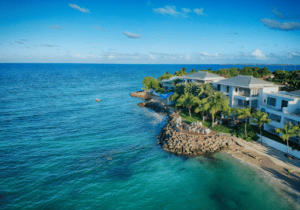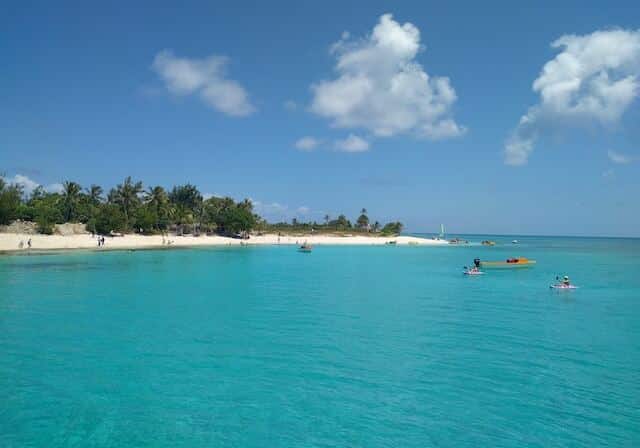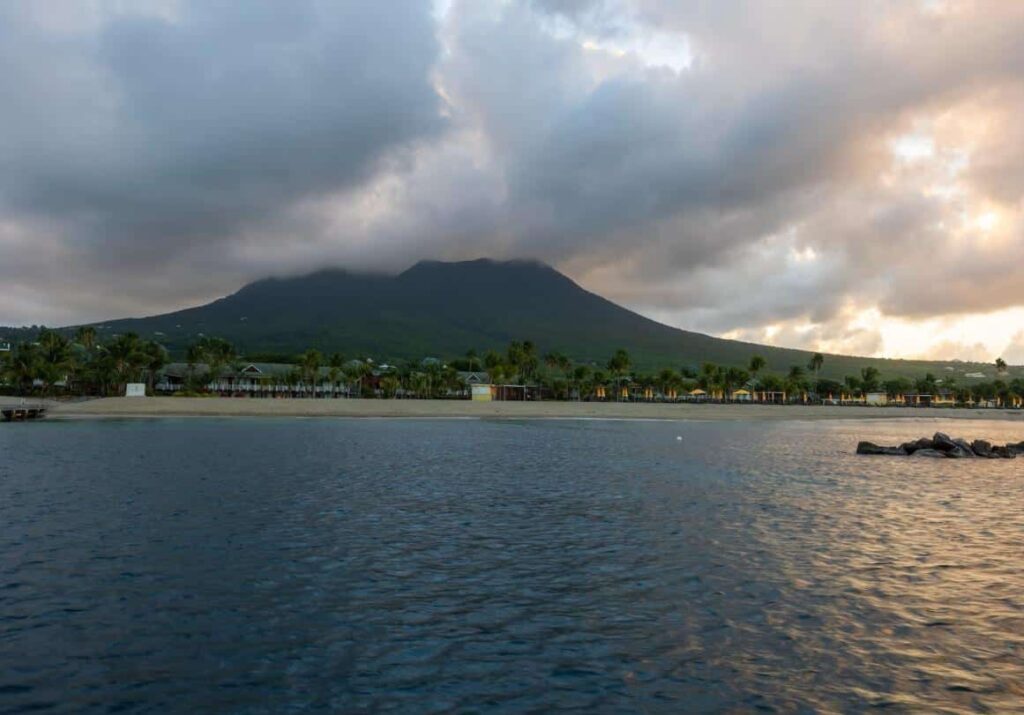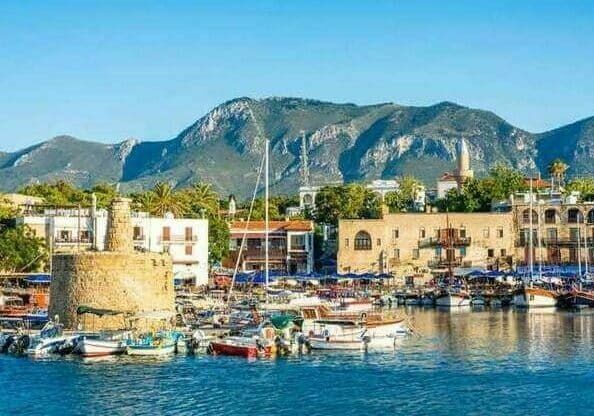Countries with no income tax exist and often thrive through alternative revenue streams. These countries typically rely on other forms of taxation, such as corporate taxes, value-added tax (VAT), or fees for services, to support their infrastructure and public services.
For instance, some countries benefit from abundant natural resources, such as oil or tourism, contributing significantly to their revenues. Additionally, they may impose taxes on businesses or non-residents, ensuring that their economies remain strong despite the absence of personal income tax.
This guide takes you through 15 countries with no income taxes and the options for citizenship or residency offered.
Is no income tax a reality?

To answer the question of how tax-free countries work, it is that no-tax countries drive their economies from income generated through other means. Having alternative sources of revenue to bank upon makes this more than achievable.
For example, a Gulf country like Qatar or Kuwait in the Middle East is very rich in natural resources. Hence, their primary source of income is the oil and gas trade.
On the other hand, countries like the Bahamas, Antigua, and Barbuda attract thousands of tourists annually, generating the bulk of their income through the travel and tourism industry.
Moreover, countries with no income tax for foreigners can also be an opportunity to attract more foreign investments. No-tax and low-tax countries are functionally similar, but they use differing types of tax systems.
Countries with low taxes employ a tax levied strictly on local sources of income. On the other hand, countries without income taxes apply a straightforward system of zero income tax.
15 Countries with No Income Tax in 2025
There are various income tax-free countries that you can choose to settle in. Most countries have a rule that once you spend 183 days of a year in their territory, you’ll be classified as a resident of that country and, therefore, liable to pay income taxes.
With a residence permit in a tax-free country, you’ll enjoy the benefits of what the country offers without paying income tax to live there. Here are the best countries to move to and enjoy a tax-free life.
1. Antigua and Barbuda

In addition, Antigua and Barbuda levies zero tax on wealth, and it is one of the few countries with no capital gains tax or inheritance taxes.
If you’re looking for the best tax-free countries for business, in Antigua and Barbuda, registered International Business Companies (IBC) are not required to pay taxes for 50 years.
These taxes include corporate income tax on income from property, securities, and other financial assets. To replace Corporate Tax, these companies pay an annual fee that is dependent on the capital size that has been authorized.
Countries with territorial and residency-based tax systems may allow you to bypass income taxes entirely if you shift both your home base and earnings to Antigua and Barbuda.
2. UAE

Furthermore, oil companies and international banks must pay corporate taxes in the UAE.
If you are a foreigner living in UAE with a long-term residency visa, then you are a tax resident. However, you must remain in the UAE for over 180 days to obtain a Tax Residence Certificate.
Apart from being a zero-income tax nation, the UAE offers world-class education, a technologically advanced healthcare system, great business opportunities, and other facilities where many foreign residents will find value.
Although cities like Dubai have adopted many Western customs and freedoms, it is best to remember that you must follow specific rules and restrictions per the country’s Islamic code of conduct.
3. Vanuatu

The country imposes no personal income taxes, inheritance taxes, capital gains taxes, or taxes on capital exports for individuals living in Vanuatu.
By paying $300 per annum, companies will not have to pay corporate or other taxes for the next twenty years.
However, since Vanuatu doesn’t have tax treaties with many countries worldwide, individuals may have to pay corporate income tax in their home country. This also applies to personal income tax.
Vanuatu is also one of the few countries that provides a direct path for foreigners to gain citizenship through investment. Vanuatu’s citizenship by investment program is known for its quick processing times and requires a minimum donation of $130,000.
4. St. Kitts and Nevis

What makes the country even more attractive is that individuals with permanent residences pay zero income tax and no taxes on dividends, royalties, or interests.
Remember that islands charge Corporate Tax at 33 percent, VAT at 10 – 15 percent, and property ownership at 0.2 – 0.3 percent.
To enjoy the perks of no income taxes, you can apply for citizenship through St. Kitts and Nevis citizenship by investment program. This program helps you obtain the country’s passport in exchange for an investment of $250,000.
5. Monaco
Monaco is famous for its glamorous lifestyle, luxury casinos, and being a haven for the ultra-wealthy. Regardless of its standard of living, Monaco has no personal income tax for residents, making it a tax-friendly destination.
Residents also have no tax on dividends, interest, or capital gains. Corporate taxes apply to companies with over 25 percent of their turnover outside Monaco, and VAT is set at 20 percent. Property taxes are also not levied, making Monaco highly attractive for real estate investment.
To become a resident of Monaco, applicants need to prove financial stability by maintaining a substantial bank account balance. Generally, you must deposit a minimum of €500,000 in a Monaco bank. Applicants must also secure a property purchase or long-term rental in Monaco to establish residency.
6. Bahamas
The Bahamas is known for its tropical climate, clear waters, and vibrant tourism industry. It offers a tax-free environment for individuals without income, inheritance, or capital gains taxes. Despite not charging these taxes, the country imposes VAT at 12 percent, property taxes, and import duties but has a low-tax economy overall.
The Bahamas does not have a formal citizenship through an investment program like some other countries. Still, it does offer a pathway to permanent residency through investment, which can eventually lead to citizenship. The most common way is to invest in real estate for at least $750,000.
7. Bermuda
Bermuda’s pink sand beaches and high standard of living make it a favorite destination for expats, especially those in the insurance and reinsurance industries. There’s no personal income tax, but Bermuda imposes a payroll tax on businesses (paid by employers), import duties, and property taxes.
Bermuda also does not offer a formal citizenship-by-investment program or provide a direct pathway to citizenship through investment. However, the country offers residency options that can be accessed through real estate investment or business ownership, which can grant long-term residency but not citizenship.
8. Cayman Islands
The Cayman Islands, famous for its world-class diving spots and offshore financial services, has no personal income tax, corporate Tax, or capital gains Tax, making it a preferred location for global financial firms.
The government generates revenue through import duties, business licensing fees, and tourism taxes. The Cayman Islands’ residency program allows residents to gain permanent residency for a minimum investment of $2.4 million and temporary residency for around $500,000.
9. Bahrain
Known for its rich cultural history and status as a growing financial hub, Bahrain has no personal income tax, making it attractive for expats. Oil companies are subject to corporate taxes, while VAT is set at 10 percent, and various government fees are applied.
Bahrain’s economy is diversifying away from oil, and residency by investment is an option for foreign investors. A minimum investment of $270,000 is required, and the option to retire in the country requires earning sufficient income.
10. Kuwait
Kuwait is another country rich in oil reserves and known for its modern architecture. It has no personal income tax, making it one of the most attractive countries for individuals and expats working in the region.
The government relies heavily on oil revenues. Corporate Tax is applied only to foreign companies, and social security contributions are required from nationals. Kuwait’s wealth from oil allows it to maintain its tax-free income policy for individuals.
Kuwait does not offer citizenship by investment. Unlike other countries in the region, Kuwait has strict laws regarding citizenship, and naturalization is tightly controlled, with a long-term residency of about 20 years. However, residency can be obtained through business investments, which does not lead to citizenship.
11. Oman
Known for its stunning desert landscapes and ancient heritage sites, Oman offers no personal income tax, making it a popular destination for expats in the Gulf. The Oman Tax Authority recently introduced VAT at 5 percent, and revenue is primarily derived from oil exports and corporate taxes.
Oman’s Investor Residency Program offers flexibility for foreign investors seeking long-term residency in a stable, tax-friendly, growing economy. While no direct citizenship by investment option exists, the residency program is attractive for those seeking opportunities in the Middle East.
12. Qatar
Qatar is loved for its booming economy and wealth from natural gas reserves. The country offers a tax-free income for residents. No personal income tax is levied, and revenue is primarily generated through corporate taxes, oil and gas revenues, and a 5 percent VAT.
Citizenship is highly restricted, but residency can be achieved through investment or work in the country. However, the minimum investment amount for the Investor Visa is around QAR 1 million (approximately $275,000). Specific requirements may vary based on the type of business or investment.
13. Brunei
Brunei is known for its oil and gas wealth, high standard of living, and well-preserved natural environment. The country has no personal income tax, but Corporate Tax is 18.5 percent.
Other taxes include property taxes, as some property owners may be subject to land rent. Brunei does not have a specific citizenship-by-investment program, but residency can be pursued through substantial investment in the country.
Generally, investing at least BND 500,000 (approximately $370,000) in a business or other qualifying investments is advisable to improve the chances of approval. However, the exact amount may vary depending on the nature of the investment and the applicant’s situation.
14. Seychelles
Seychelles is appreciated for its relaxed lifestyle, stunning beaches, and rich biodiversity. It is a popular destination for tourism and luxury living. The country has no personal income tax; it does not levy income tax on foreigners. Other taxes include a 15 percent value-added tax (VAT) on goods and services and a 25 percent Corporate Tax on resident companies.
Seychelles offers a Citizenship by Investment program, through which individuals can obtain citizenship through investments in real estate or business ventures. A minimum investment of $1 million in real estate is required. Investors can purchase real estate that is approved for the citizenship program. The property must be maintained for a minimum period (usually five years) before selling.
15. British Virgin Islands (BVI)
The BVI is popular for offshore business and financial services. It is known for its stable political environment and privacy laws. To make things better, the country has no personal income tax, capital gains tax, or inheritance tax. Corporate Tax is also zero percent for most companies, while Property Tax is modestly charged.
BVI does not have formal citizenship through an investment program. However, investors can apply for permanent residency through significant investments in local businesses or real estate, which requires a minimum investment of at least $1 million. After that, individuals can apply for a Permanent Residency Certificate, which allows them to live and work in the BVI.
Other Tax-free Countries in 2025
Apart from the abovementioned countries, several other countries have a no-income-tax policy. However, note that you can’t acquire citizenship in these countries by investing. Although, in some of these countries, you can obtain residency through investment. In these cases, it’s more expensive to acquire citizenship.
This section will take you through the list of other countries with no income taxes.
Country | Taxes on Companies/Individuals | Immigration by Investment |
Bahrain | Corporate: Companies working in the oil and gas sector need to pay 46 percent income tax VAT: ten percent Property: Around 1.7-2 percent stamp duty and 10 percent municipality tax for rental to expatriates | You cannot obtain citizenship but can apply for permanent residency in the country. If you're an American retiree and invest $530,000 into real estate, you can obtain a residency visa through the Bahrain Golden Residency Visa program. The great thing about this visa is that it is renewable indefinitely as long as you continue to meet the requirements. |
The Bahamas | Corporate: To apply for a license for business, you have to pay around three percent of the turnover. VAT: Zero - twelve percent Property: One - ten percent of stamp duty and around 0.75 - two percent real property tax | You cannot acquire citizenship through investing. By investing $750,000 million, you can obtain residency. |
Bermuda | Corporate: An annual company fee based on share capital levels VAT: Zero percent Property: A land tax based on the assessed annual rental value | You cannot apply for citizenship but can obtain residency by investing $2.5 million. |
Cayman Islands | Corporate: Not applicable VAT: Zero percent Property: 7.5 percent Stamp Duty | You cannot apply for citizenship, but you can obtain permanent residency by investing $2.4 million. |
Monaco | Corporate: Companies earning more than 25 percent of their revenue outside Monaco must pay around 33 percent Corporate Tax. The standard Value Added Tax rate is around 20 percent Property – Not applicable | You cannot obtain citizenship, but by depositing €500,000 ($536,000) into a Monaco bank account, you can acquire residency. |
Brunei | Corporate: 18.5 percent of income tax VAT: zero percent Property: Varies based on the municipality | Neither citizenship nor residency is possible in Brunei. |
Kuwait | Corporate: 15 percent income tax VAT: Zero percent, but the country plans to impose five percent this year. Property – None | Neither citizenship nor residency is possible in the country. |
Qatar | Corporate: Ten percent Income tax: Zero income tax on worldwide income VAT: Zero percent, but the country will be imposing a five percent VAT this year Property: Fees for lease registration | You can invest $1 million for a renewable permanent residence permit. |
Somalia | No Tax | You cannot apply for citizenship or residency in this country. |
Western Sahara | No Tax | You cannot apply for citizenship or residency in this country. |
Tax-Free Countries vs Low Taxed Countries
While tax-free countries do not impose income taxes on residents, low-taxed countries impose taxes at significantly reduced rates compared to the global average. They may offer lower income tax brackets, reduced corporate tax rates, or various tax incentives to attract businesses and individuals.
Additionally, various countries across the globe offer residency or business opportunities to help you save taxes. Most of these countries have very little to no residency requirements, so you don’t have to spend most of your time in that country. These two countries offer some of the best citizenship through investment options with low tax regimes.
Malta

The country is one of the world’s smallest and most densely populated countries. Its capital is Valletta, the smallest national capital in the European Union by area and population. Malta joined the European Union in 2004 and the Eurozone in 2008.
The country also offers a Malta citizenship-by-investment program, also called the Malta Citizenship by Naturalization for Exceptional Services by Direct Investment, with the following investment requirements:
Contribution to the National Development and Social Fund:
- Minimum Contribution: €600,000 for a residency of at least 36 months or €750,000 for a residency of at least 12 months.
Real Estate Investment:
- Minimum Investment: €700,000 for a property purchase or €16,000 for a property lease (minimum lease term of five years).
Residence Requirement: Before applying for citizenship, the applicant must physically reside in Malta for at least 12 months (or 36 months, depending on the chosen contribution route).
Holding a Maltese passport comes with numerous advantages. As members of the European Union (EU), citizens are granted the right to live, work, and study in any EU member state. Additionally, the passport allows visa-free or visa-on-arrival access to over 180 countries, including those in the Schengen Area, the United Kingdom, and many nations across the Americas and Asia.
Cyprus
Cyprus is an island country in the Eastern Mediterranean, south of Turkey and west of Syria and Lebanon. It is the third largest and most populous island in the Mediterranean.
Cyprus has a rich history that dates back to ancient times. Mycenaean Greeks settled it around the 2nd millennium BC, and it is famous in Greek mythology as the birthplace of Aphrodite.
Fortunately, there are options for gaining citizenship on the beautiful island through the Cyprus Golden Visa, which has the following investment requirements:
Real Estate Investment: A minimum investment of €300,000 in a residential property in Cyprus. This property must be new and must be purchased from a developer.
It offers similar benefits as the Maltese passport, such as access to the EU and the opportunity to work, study, and live in the union. It also provides free access to Schengen Area countries for up to 90 days within 180 days. Not to forget that Cyprus permits dual citizenship, enabling individuals to retain their original nationality while enjoying the benefits of Cypriot residency.
How Can Global Citizen Solutions Help You?
Global Citizen Solutions is a boutique migration consultancy firm with years of experience delivering bespoke residence and citizenship by investment solutions for international families. With offices worldwide and an experienced, hands-on team, we have helped hundreds of clients worldwide acquire citizenship, residence visas, or homes while diversifying their portfolios with robust investments.
We guide you from start to finish, taking you beyond your citizenship or residency by investment application.

Frequently Asked Questions about No Income Tax Countries
Which countries don't have taxes?
At present, there are 14 countries without income taxes.
These include Antigua and the neighboring Barbuda, Saint Kitts, the United Arab Emirates, Vanuatu, Brunei, Bahrain, the Bahamas, Bermuda, the Cayman Islands, Monaco, Kuwait, Qatar, Somalia, and Western Sahara.
There are also a few countries that have no property taxes.
Which Caribbean country has no earnings tax?
The Cayman Islands in the Caribbean has a tax-friendly infrastructure for its residents.
The country charges zero tax on your personal income, payroll, capital gains, or withholding tax. Check out our article on Caribbean taxes for more information.
Which is the best tax-free country?
Bermuda, the Cayman Islands, Saint Kitts and Nevis, Vanuatu, the UAE, and Antigua and Barbuda are some of the best tax-free countries in the world.
Do I have to relocate abroad to optimize taxes?
It’s not compulsory to move abroad to optimize taxes. You can also choose not to relocate but re-register your business abroad to reduce your tax liability.
Which European country has no income tax?
Monaco is a European country that doesn’t impose earnings tax on residents.
Why does UAE have no tax?
The UAE has no tax because, as an oil-rich country, it’s able to generate the bulk of its income from the oil industry.
The no-tax policy is also used to attract skilled expats, global talent, and international companies to boost the economy further.
Which European country has the best retirement benefits?
According to a global pensions report from the Mercer CFA Institute, the Netherlands is recognized as having one of the best pension systems globally.
This report, which assessed over 50 indicators and compared 47 retirement income systems covering 64% of the world’s population, places the Netherlands at the top due to its comprehensive private and public sector pension benefits, system sustainability, and governance quality.
Following closely are Iceland and Denmark, indicating a strong performance by European countries in the domain of retirement benefits.
However, the report also points out areas for improvement in several other European nations and underscores the significant impacts of inflation, interest rates, and geopolitical uncertainties on global retirement income systems.




